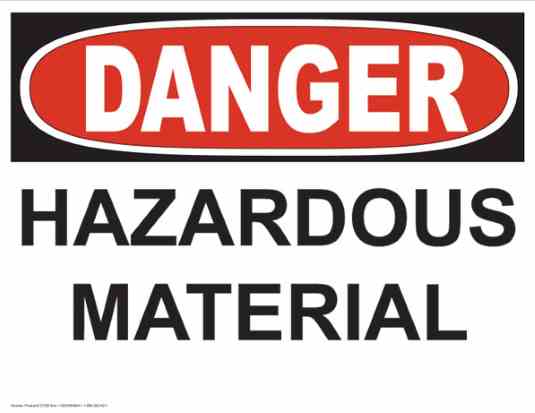Danger! Hazardous Materials Ahead
Hazardous materials are those materials described by the U.S. Department of Transportation that could adversely affect people and the environment. USDOT requires certifications for workers who handle, remove or ship hazardous materials. These certifications involve learning the risks and safety measures for handling these materials.
At Auto Bolt, we take these certifications seriously because of the impact they have, not only on us, but our customers. Typically, certification requirements come into play with a coating that we’re putting on one of our products. Specifically, a coating like hexavalent chromate, or Cr6, requires certifications.
Hexavalent chromium is a form of the metallic element chromium, a naturally occurring element. It is widely used in electroplating, which is what Auto Bolt uses it for.
And it’s a known carcinogen, which requires us to follow certain directives and apply specific certifications to orders.
In some industries, hexavalent chromate has been replaced by trivalent chromates (Cr3), but it can still be found in the automobile aftermarket, heavy truck, and agricultural industries. We’ll have more on that later.
How We Handle These Orders
When an order comes in that involves a coating like hexavalent chromate, everything has to be compliant so the customer understands exactly what they’re asking for and what they’ll receive. Our process begins right at the quote stage. Our sales team works directly with the customer to make sure everything is taken care of.
We then have to make sure everything is routed correctly through the production cycle, and that our instructions are coherent and straightforward. Because of these coatings and the needed certifications, our production process can take extra time so it’s important the customer understands that.
Most of the time, our customers know what they’re asking for. We’ll get in quotes that specify RoHS or Prop 65 compliance, or they need us to fill out an IMDS sheet (The International Material Data System is a global data repository containing information on materials used by the automotive industry).
Different Directives
Auto Bolt complies with several different directives requiring certification. Let’s look at a few in detail.
- RoHS. The Restriction of Hazardous Substances, also known as Directive 2002/95/EC, originated in the European Union and restricts the use of specific hazardous materials found in electrical and electronic products. The substances banned under RoHS are lead (Pb), mercury (Hg), cadmium (Cd), hexavalent chromium (CrVI), polybrominated biphenyls (PBB), polybrominated diphenyl ethers (PBDE), and four different phthalates (DEHP, BBP, BBP, DIBP).
- REACH. The Registration, Evaluation, Authorization and Restriction of Chemical is a regulation of the European Union. REACH establishes procedures for collecting and assessing information on the properties and hazards of substances. It also promotes alternative methods for the hazard assessment of substances in order to reduce the number of tests on animals.
- ELV. The End of Life Vehicles Directive is a directive of the European Union addressing the end of life for automotive products. The directive aims to reduce waste arising from end-of-life vehicles, with the scope limited to passenger cars and light commercial vehicles. The directive covers aspects along the life cycle of a vehicle as well as aspects related to treatment operations. It’s designed to prevent the use of certain heavy metals such as cadmium, lead, mercury and hexavalent chromium.
- Prop 65. California Proposition 65 requires businesses to provide warnings to Californians about significant exposures to chemicals that cause cancer, birth defects or other reproductive harm. These chemicals can be in the products that Californians purchase, in their homes or workplaces, or that are released into the environment. It requires California to publish a list of chemicals known to cause cancer and it must be updated at least once a year.
Markets Impacted
While every market and every customer could be impacted by the need for certification, some markets are more affected than others.
Because of the ELV Directive we reviewed earlier, the automotive market directly is impacted. OEMs have teams dedicated to staying on top of these directives, but more and more it’s the aftermarket side that is playing catch up. That’s where Auto Bolt can help customers by educating them on why putting a coating on a certain part will force it to require certification. And we’re happy to walk them through the process.
In addition to the automotive world, the agriculture and heavy truck markets are starting to require additional certifications. Plus, distributors are being impacted as well since they have to handle, ship and process these parts for their customers.
If you have specific questions about certifications on your orders, please don’t hesitate to contact us.
Topics

